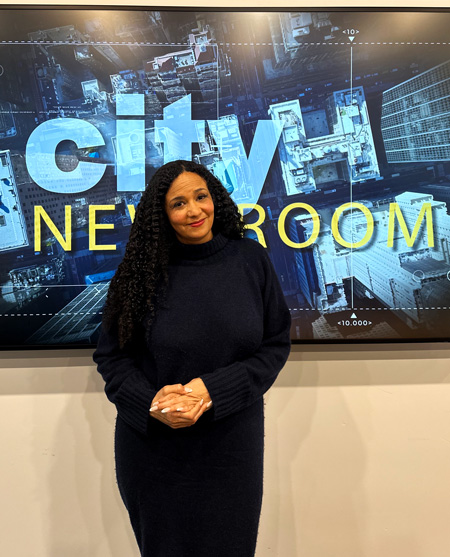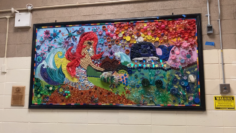By Jason Evan Ponterotto, Genevieve Charles, Francesca Maria Lorenzini, Andrea Pineda-Salgado, John E. Williams, Xinyuan Cao
When Raya Salter told a fellow Black woman about her climate work, she says she was told “Good luck with the polar bears, sis!” It’s a common misconception Salter sees people make when they think about climate change — that it’s not about people.

An attorney who’s made her mission to educate others about our current environmental crisis, Salter is the founder of the Energy Justice Law and Policy Center and a member of the New York State Climate Action Council, which developed New York’s climate law. Enacted in 2019, this legislation set ambitious benchmarks for reducing carbon emissions in the state: 40 percent by 2030 and 85 percent by 2050.
“We are both at a key point in the climate crisis and at the dawn of the climate movement,” Salter said in an interview with City Newsroom on April 4.
Salter frequently uses social media to spread her message, with the goal of making climate and energy policy more accessible and fun. Calling herself “Climate Auntie,” she speaks about topics like air pollution and energy insecurity.
Climate change is now affecting all corners of the world, from island nations in the Pacific Ocean threatened by rising sea levels to urban environments like New York City, where racial inequalities created by redlining and underinvestment have contributed to its disproportionate impact in some communities. For example, Central Brooklyn, Upper Manhattan, and the South Bronx have the highest heat vulnerability, according to the NYC Mayor’s Office of Climate and Environment Justice.
“People of color are the most directly impacted and need outreach on these issues,” Salter said.
She added that issues such as maternal and infant health, air quality, asthma and poor access to fresh food are all connected to environmental justice.
At the same time, she acknowledges that news about the climate emergency has generated a lot of eco-anxiety among young people.
“The antidote to that is, yes, we have things we need to urgently do, but it’s a part of how we do stewardship, how we learn about these things,” said Salter.
Salters thinks there is a certain privilege in Western countries of looking into the future and thinking about how we can maintain our comfortable lifestyles without considering the cost to the environment. But the devastating consequences of global warming are becoming clearer. “The truth is, in many parts of the world, this is already happening,” she said.
That’s why Salter encourages people to make the connections between things they do in their daily lives, the impact they have on the climate and environmental justice. “Stay woke!” she concluded.






